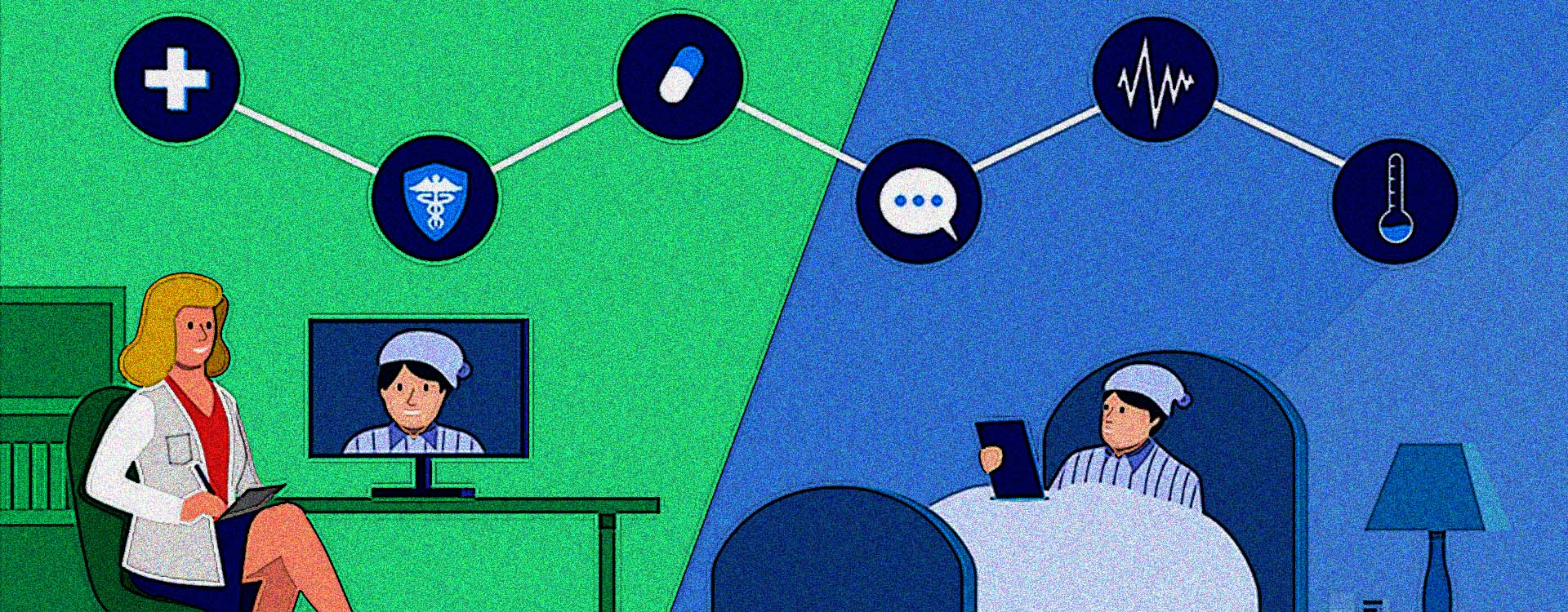The world has been heading towards a significant shift in the way healthcare is delivered for quite sometime now. Contactless health-monitoring has been gaining grounds since past few years with companies leveraging the power of technology to bring in efficiency in the healthcare industry. Then, Covid-19 happened.
Now, the term ‘contactless’ has become the need of the hour rather than an upgrade in the industry and it is here to completely transform the way healthcare is delivered.
What is contactless health-monitoring technology? In simple words, it is IoT-enabled devices that can help by minimising the need for physical touch and close proximity between staff/doctors and patients without diminishing the quality of care.
Filling in Gaps: Monitoring at Hospitals to be the New Normal
Let’s consider India’s scenario. The doctor-patient population ratio in the country is 1:1456, as opposed to the WHO recommended 1:1000. This ratio is even worse in remote areas. The Covid-19 highlighted this gap in a major way where medical services were strained amidst dearth of resources and professionals besides a complicated situation of “no contact” healthcare delivery.
Technology came to the rescue with “remote patient monitoring”, which allowed physicians and hospitals to monitor patients outside of the conventional clinic setting with technology providing 24/7 data between patients and physicians “without any touch”. For instance, healthcare start-up Dozee recently launched an AI-powered triaging system that converts any bed into a step-down ICU in under 2 minutes and enables remote monitoring of patients outside of the ICU.
The device, which is to be kept right underneath the patient’s chest area or attached to a thin sensor sheet below the mattress, gives continuous data (250 data samples per second) of a patient’s heart rate, respiratory rate, and other clinical parameters like sleep apnea, myocardial performance metrics without coming in contact with the patient.
With such technologies, doctors are able to monitor hundreds of patients from a web-dashboard or a mobile app, no matter where they are located. This real-time body vitals monitoring and readily available patient data without manual intervention (admitted or in home-care) will change the way healthcare is delivered.
First, this will reduce the constraints on limited medical infrastructure as doctors will be able to cater to the emergency cases and strike an overall balance. The rate of casualties will come down significantly. Patients can obtain timely healthcare services at lower costs — without having to travel to the hospital every time.
Second, with custom alerts on every patient, doctors are able to optimise treatment plans, focus on deteriorating patients and provide improved proactive care. In short, an efficient healthcare delivery with early intervention and treatment. The contactless technology will also serve as an effective tool to keep a tab on the vitals of people during their post-surgery recovery phase at home. This means patients will not be seen running the corridors of the hospitals for every day post surgery checkups.
‘‘
The kind of “catch illness before its symptoms are visible” with the use of technology without even going to the hospital or having no knowledge about it yourself is the future of healthcare.
Am I Heading Towards a Heart Attack?
Contactless health monitoring is disruptive in terms of early detection of patient deterioration. For instance, Hyderabad-based start-up Vigocare has also come up with a device that enables doctors to measure body vitals like ECG, skin temperature, respiratory rate, blood oxygen, and heart rate, among others and notifies the care team of any abnormalities before it becomes critical. As soon as the device is positioned on the chest of the patient, the medical-grade biosensors in it gather the health data which, in turn, is transferred to the cloud where an AI-driven central command centre analyses the data to produce results, as well as alerts on the app.
This kind of “catch illness before its symptoms are visible” without even going to the hospital or having no knowledge about it yourself is the future of healthcare. I might be breathing normally right now, but who knows if I am headed towards an illness. This kind of technology will become vital in future given the lifestyles we are leading.
AI monitoring with the help of these devices (which might become the most valuable accessory in future!) will eliminate regular checkups and predict health issues in advance. The contactless device will monitor your vitals on a regular basis and precept the future health issue that may or mayn’t arise. Hope my heart is doing well…
Predictive Data Analysis will be a Boon
Contactless health monitoring is creating a big data pool of patients’ medical history. This combined with AI is helping companies churn out algorithms for analysis and future predictions. With doctors having access to patient data, the delivery rate will be much more efficient. This will also pave the way for companies to accurately predict specific disorders, especially in neurology, pulmonology and cardiology space besides providing an impetus to medical research.




